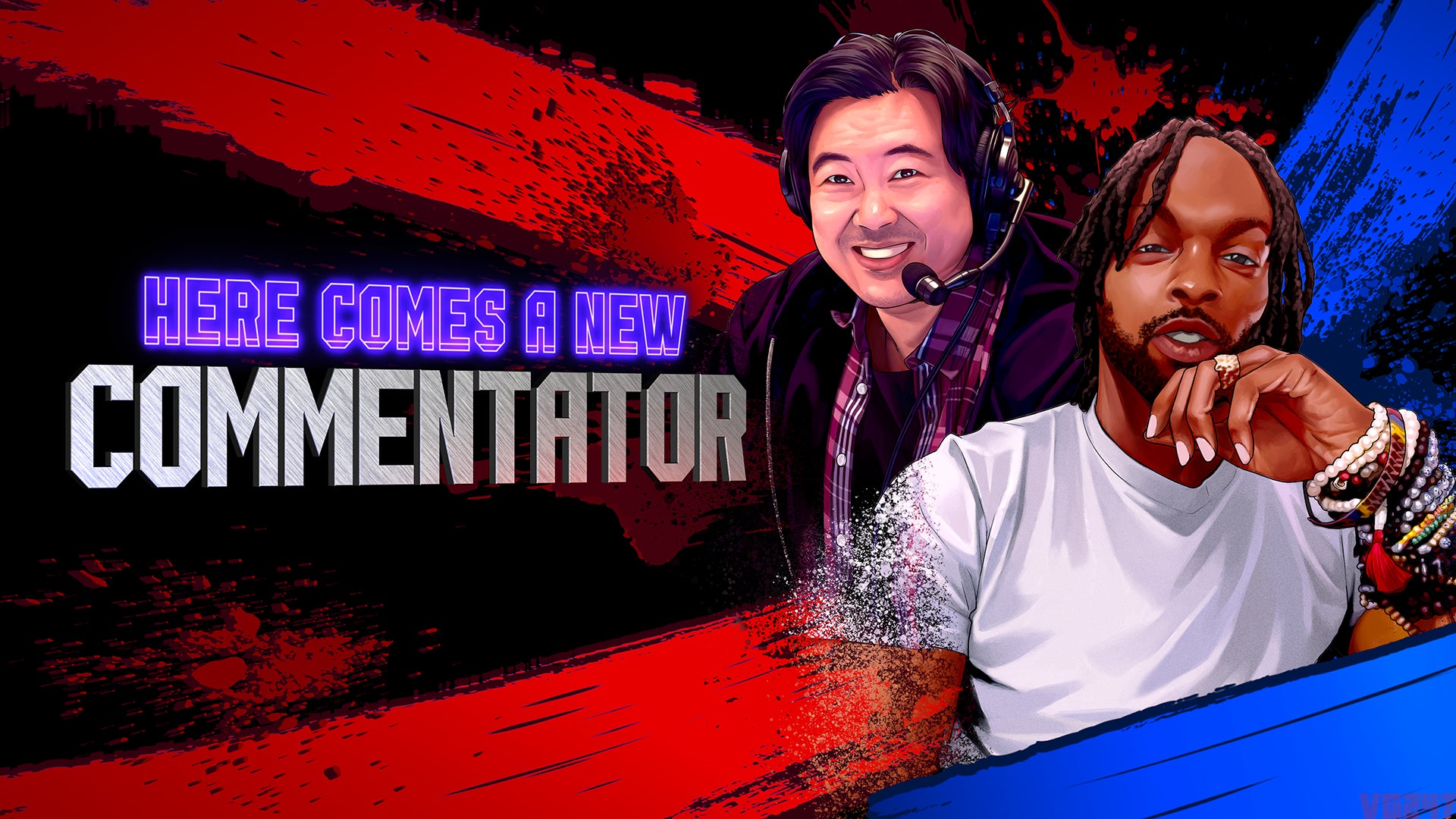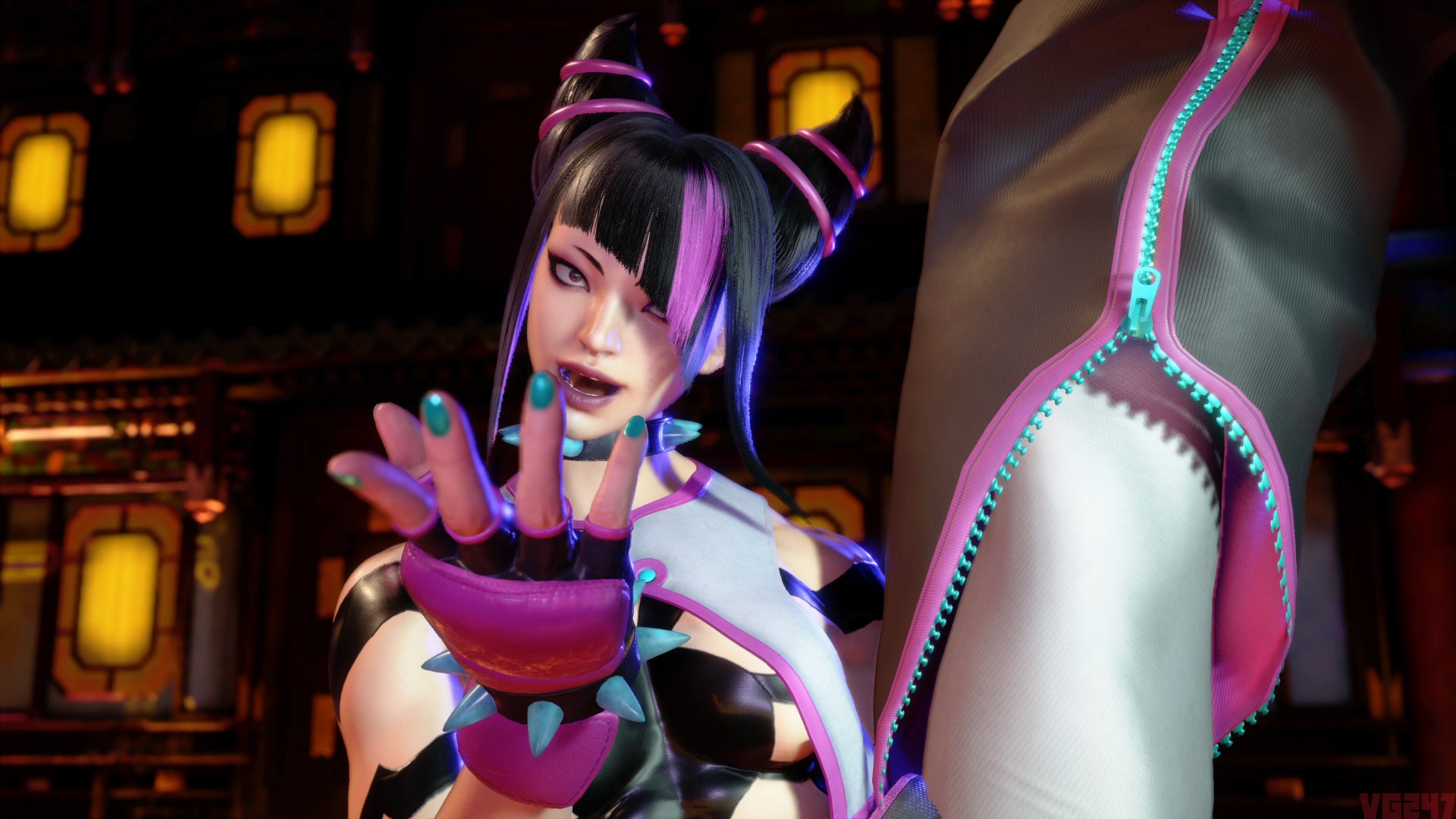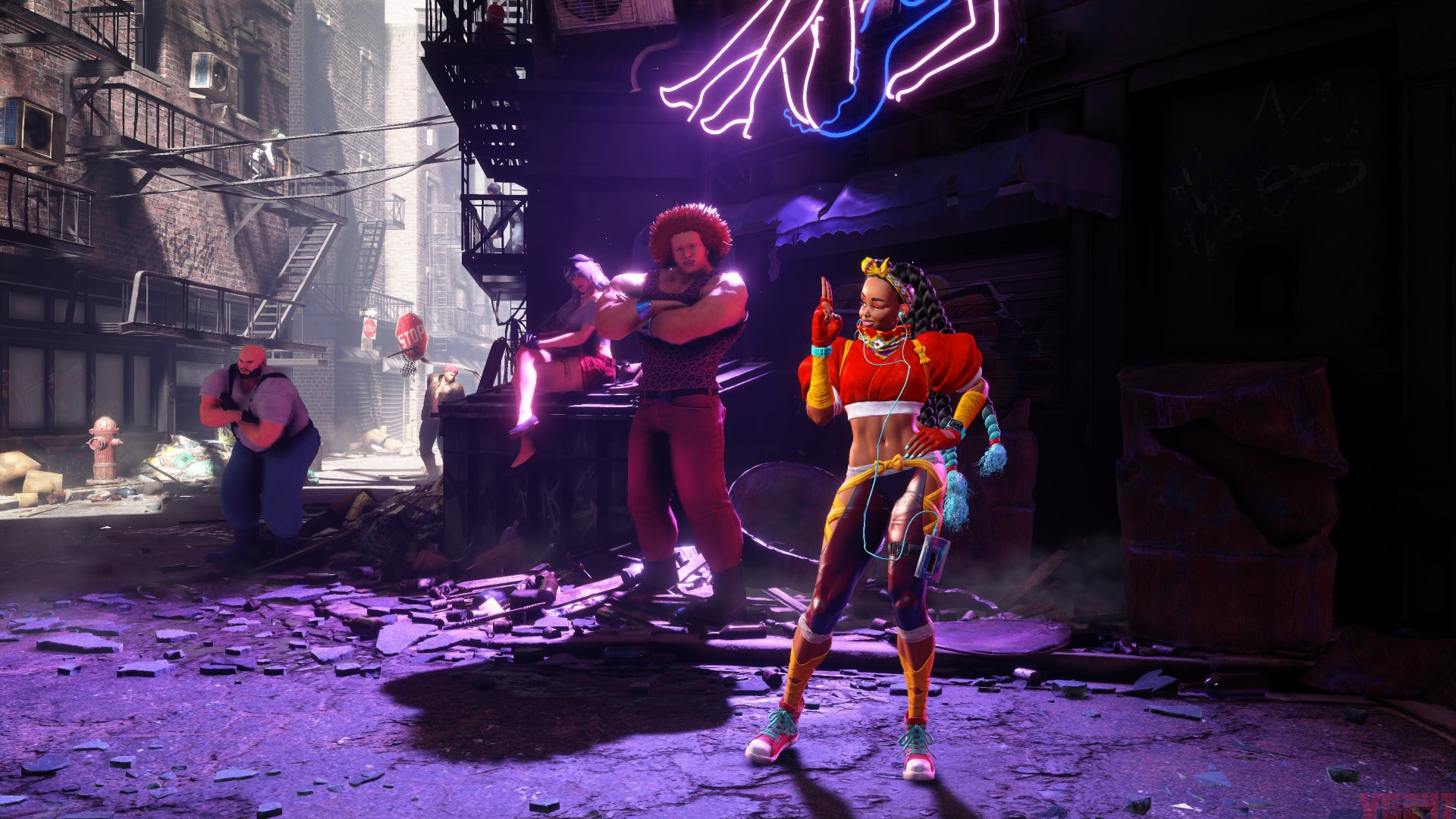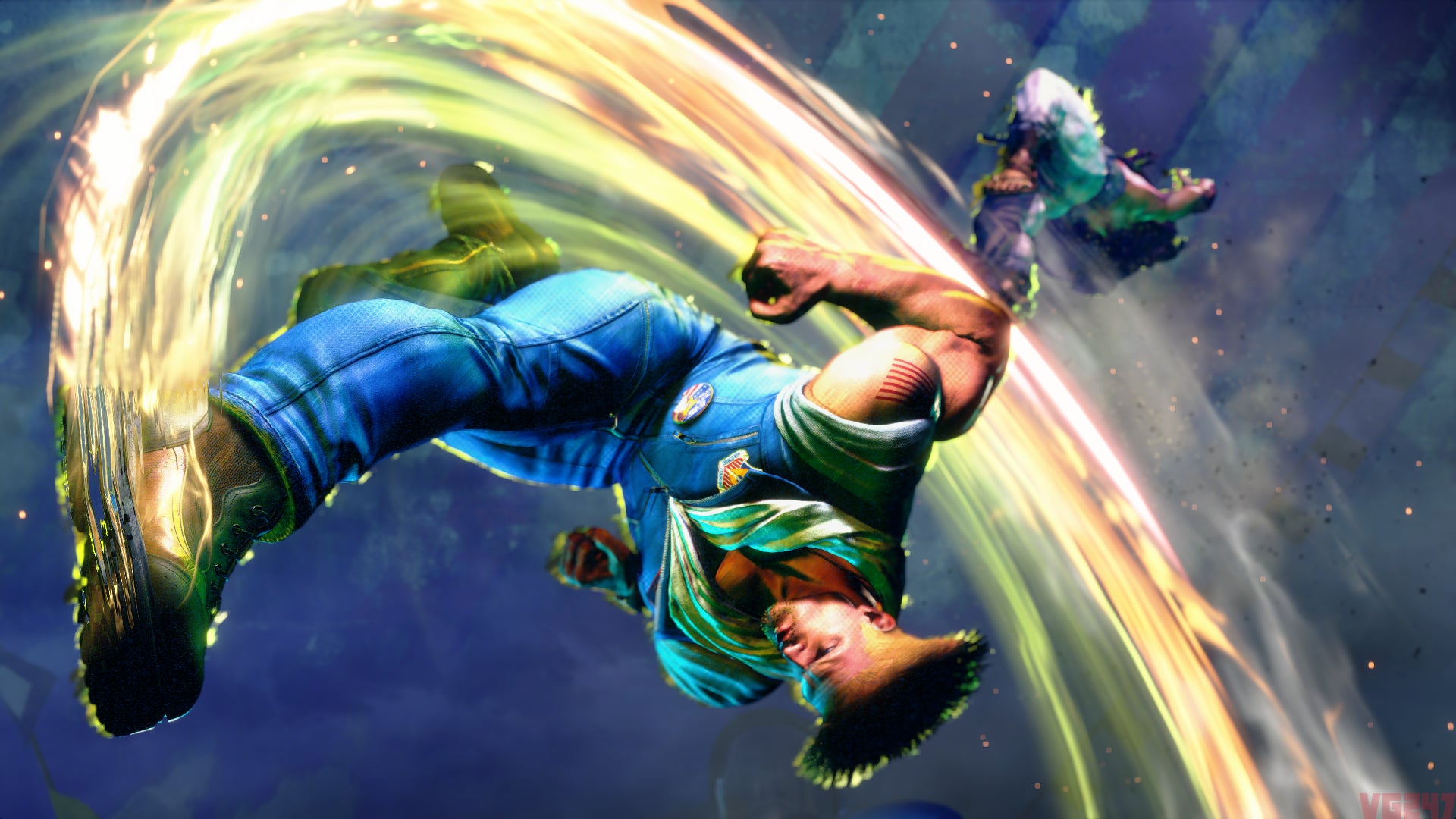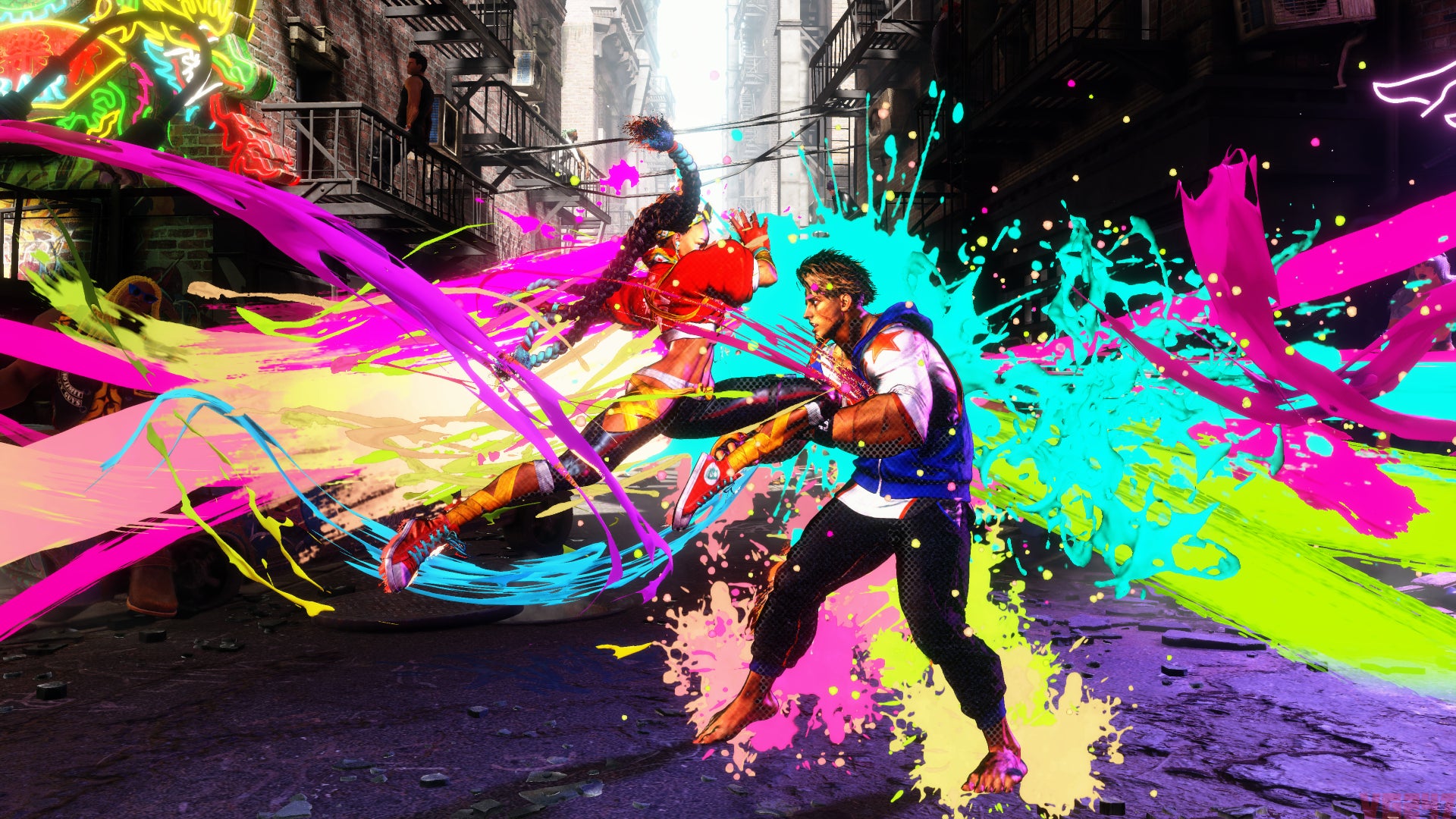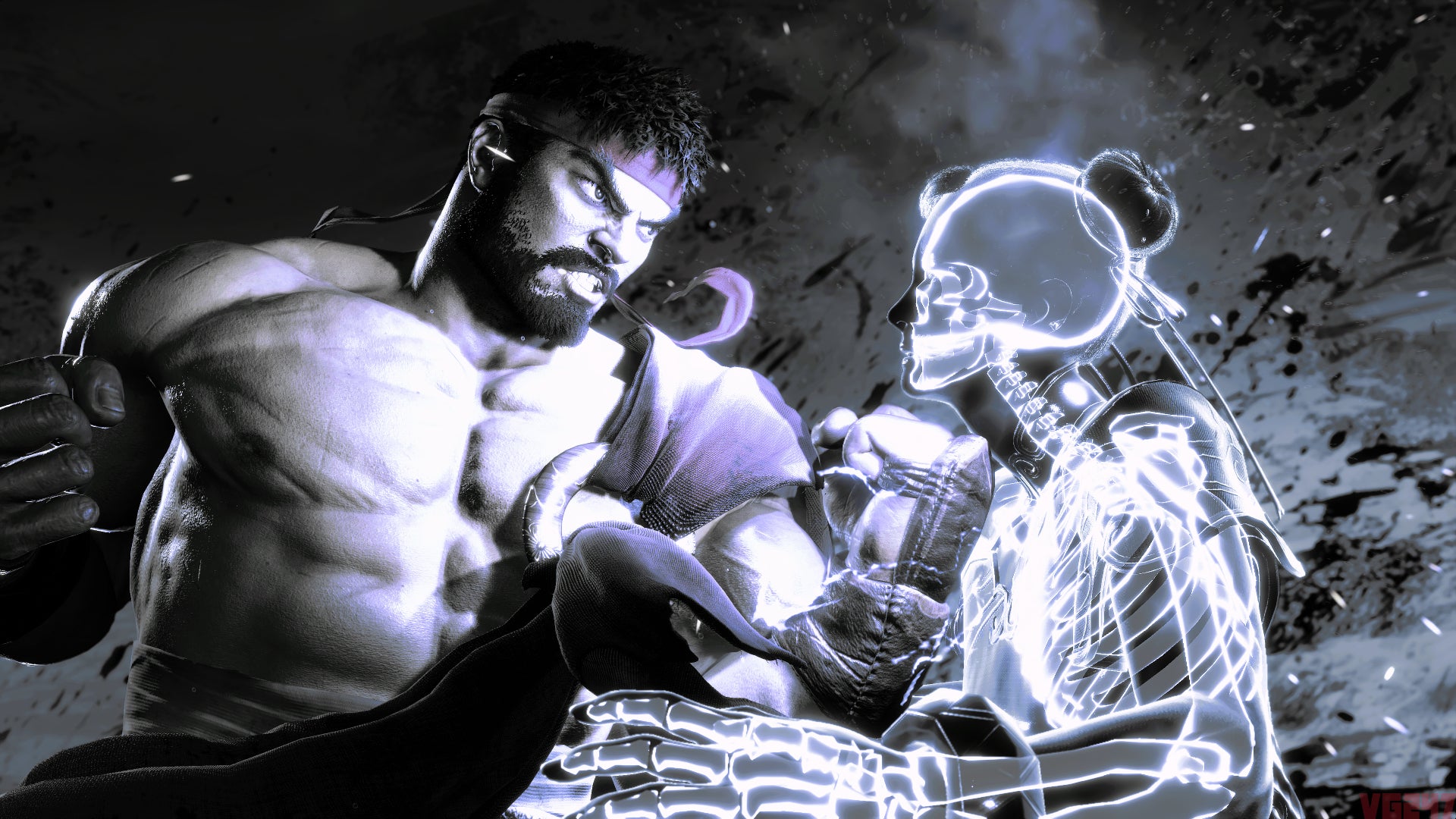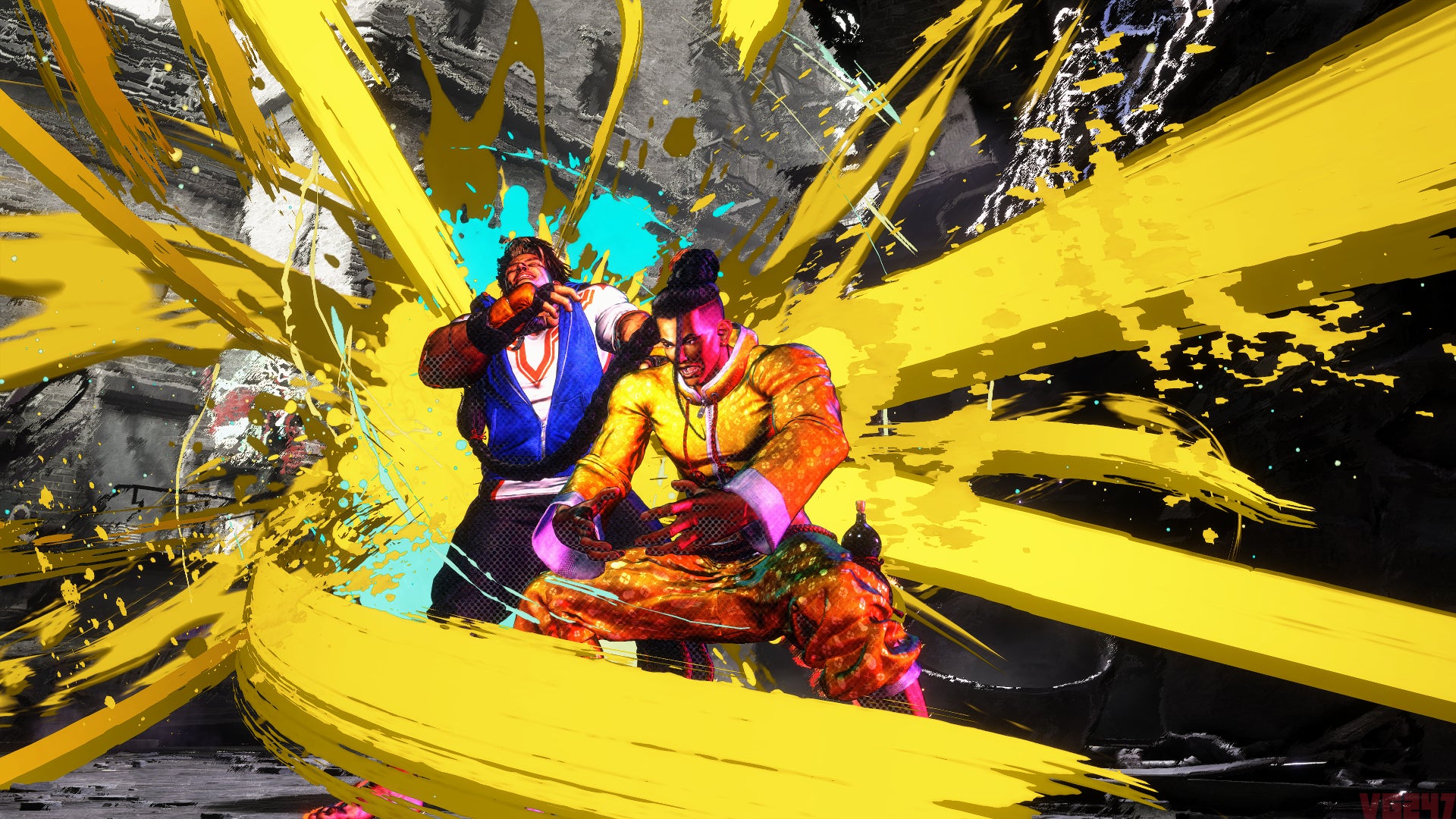I’ve already played Street Fighter 6, of course. But this new sit-down, with a Tokyo Game Show build of the game, is a slightly updated and different build to the one I spent an hour or so with before. Here’s what’s new this time around:
Four additional playable characters, bringing the total in this version of the game to eight. The newcomers are; Juri of SF4 fame, two SF2 characters in Guile and Ken, and SF6 newcomer Kimberly. Two new stages; Tian Hong Yuan (a traditional-looking area probably in China) and Carrier Byron Taylor (Guile’s stage, a military aircraft carrier), bringing the current total to four. Two new Commentators as announced at Evo; SF community legends Steve ‘TastySteve’ Scott and James Chen. They join the two existing commentators.
I want to start out with what might seem like the least consequential piece of this updated build – the new commentators. And, well… I’m impressed? Commentary in video games is, of course, always a bit of a mixed bag. It repeats itself, it becomes stale, and it is often the subject of memes (especially in traditional sports games). But Street Fighter 6 has a canny solution to these ills – and it just might work. Specifically, there’s actually not just one type of commentator in SF6, but two. In truth, this is inspired by how tournament commentary often really works; one commentator deals with the ‘play-by-play’, reacting to the moment-to-moment specifics of what is going on. Meanwhile, the ‘color’ commentator fills in with jokes and insight when the action isn’t as intense. This is how commentary works in a lot of sports – and Capcom has bought it into SF6. What’s clever is that you can have only one of these if you like – or you can mix-and-match the commentators. The only color commentator revealed right now is James Chen, for instance, but you can have Chen pair up with TastySteve, Vicious, or even the Japanese-language commentator Aru, and they’ll have a simulated back-and-forth over the course of a match. There’s even a setting where you can have the commentators take the side of a specific player, and cheer them on more explicitly, if you so wish. What’s surprising is how well this system works. It’s difficult to appreciate when you’re actually playing, as you’re more focused on the match, but for a little while I set the game to have two level 8 CPUs go at it, and just sat back and listened to the commentary. It really works! Compared to the last build, the addition of the color commentary adds a lot – Chen is recognizably in the same style he uses at real tournaments, and obsessively peppers in references to the announcers of old Street Fighter games, chirping out references to games like Street Fighter Alpha by hollering “Go for broke!” or “It all depends on your skill!” at the start of rounds. Meanwhile, TastySteve’s commentary gets more specific, referencing things like spacing, meter usage, footsies, and the danger of getting pushed into the corner. You can treat this one of three ways, the way I see it. First, you can turn it off and have the traditional Street Fighter experience. Second, you can treat it as something for the audience, if you’re playing on a stream or with other people in the same room. Finally, you can actually treat it as a learning aid, where keeping an ear out for the commentator’s comments might clue you in as to something you’re doing right or wrong. It’s a cool system, and I wanted to give it its dues for a moment. I look forward to seeing more commentators get revealed (I really hope Yipes is an upcoming color commentator). But okay, enough about that. What about the characters? What about how it plays? Well, it’s still brilliant. If you don’t know the core mechanics of Street Fighter 6 like the game-changing Drive System, I suggest you first read my initial hands-on with the game where I introduced those systems (that’s linked at the top of the page). A little more time with them means I’m a little more intimate with them now, however. On a broad level, I really do feel now that the Drive System is an incredibly clever and elegant solution to many of the woes of Street Fighter 5’s V-System. There are less bars to manage, with basically all of the core systems except Supers now tied into one bar. This takes some getting used to, but in this second hands-on, I was finally bedding in – which meant I was controlling my mashy urges more and depleting my drive gauge less. It feels like the ability to zone and the back-and-forth in the mid-range on the ground is together and more thrilling in this game – more like Street Fighter 4, in fact. And with eight characters to choose from (barely over a third of the total cast, if leaks are to be believed), it’s now easier to see how the system works across different character archetypes. Though, we’re still lacking a grappler – c’mon Capcom, reveal ‘Gief!. Guile has always been a deliberate-feeling character – sort of a tank, what with holding down-back to perform most of his specials. He feels even more so in SF6. I’m no Guile expert, but he has slow but powerful normals that feel difficult to get in with… but once you’re in, you can then unleash a super-damaging hell on your opponent. That’s my read on him after a few rounds, but I’m sure he’ll be even more of a monster in the hands of someone more experienced. Juri was one of my secondary mains back in Street Fighter 4, but I really struggled to get on with her SF5 iteration, which was all about charging ‘stocks’ of her fireballs and a nearly completely different move-set. The SF6 iteration of this antihero is quite similar to SF5, but there’s enough of her original version in there that my interest is piqued. She has her dive kick back, which is the biggest thing to me. It felt like she had some really generous hitboxes, but she was also the character I naturally ended up abusing the drive gauge with most – slipping into an exhausted state – possibly because, as in SF5, many of her specials feel a little soft, leading me to rip out the EXes more often. Kimberly is a joy. A newcomer for SF6, she isn’t entirely new at the same time. This young lady is an apprentice of Final Fight protagonist and SF veteran Guy, who is part of a lineage of characters with a specific fighting style that also includes Maki and Zeku. Kimberly demonstrates what’s most exciting about SF6 finally giving us a Street Fighter sequel again, at last. Everything since the 90s has been a prequel to at least Street Fighter 3 – but by moving the timeline on, SF6 can introduce new faces who are inspired or trained by the older generation. You get that in Kimberly. If you’ve played Guy, much of Kimberly will feel vaguely familiar… but it’ll also be wildly different. She’s tricksy, with traps she can lay in the form of exploding spray paint cans. Teleports aren’t in a puff of ninja smoke, but in a thick cloud of spray paint. Her animations are full of energy and attitude – and though she borrows some of her master’s moves, she’s definitely very much her own character. She’s also just damn good fun. As a friend put it, she’s “all buttons, no brain”. Which, of course, is a reductive way to think about it (there is careful thought involved), but it demonstrates how she’s an in-your-face, aggressive rush-down type character. She’s a joy to play, and I can’t wait to see her in the hands of better players than me. Finally, last but not least, there’s Mr. Ken Masters, hotly anticipated because leaked concept art saw him dressed in a way that had fans nickname him “hobo Ken”. I’m still not sure what happened to him story wise – if Eliza really did take the kids or if something else is going on – but it seems this new future hasn’t been 100% kind to Ken, leaving him slightly more ragged and rough and ready than the preened, Under Armor wearing multi-millionaire Ken we got in Street Fighter 5. Whatever changes his character has been through, Ken is by and large the same character he’s been in previous games. I suppose this is a character design that you don’t mess with, as people know exactly what he plays like and enjoy that familiarity. Ken has a couple of new kick-based moves, including the Jinrai Kick, a move that chains into a few other buttons like a target combo and resembles one of his supers (Shippu Jinraikyaku) from some of the versus games, but beyond that he feels pretty familiar. Ken’s also a great poster-child for the visual glow-up this series has received, though. The faces in this game, in particular, are wonderful; almost like the team took the battering Capcom got for the state of Ken’s face and hair in SF5 to heart. Street Fighter 6 has a colorful pop and a delightful attitude, but it also has a more realistic, grounded style than the last two 3D SF games. It threads the needle – and I can’t wait to see more of my favorites rendered in this style. So, yes – unsurprisingly, a new build of Street Fighter 6 with more stuff in it slaps. It’s really good. It remains my most-anticipated game of 2023; and I can’t wait to see who’s next. Fingers crossed I get to see my main, Cammy, soon enough…
